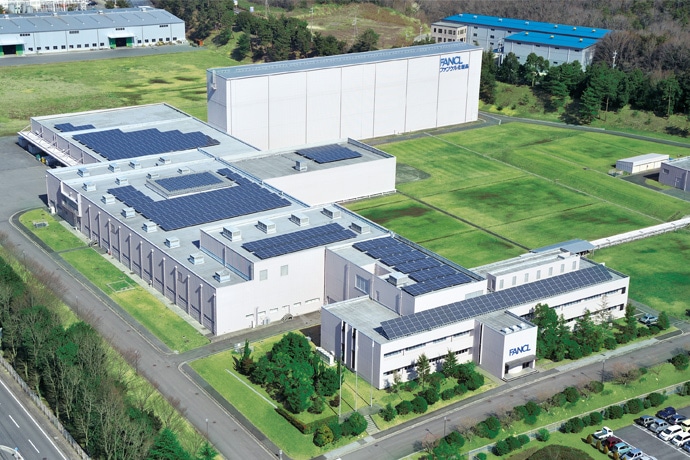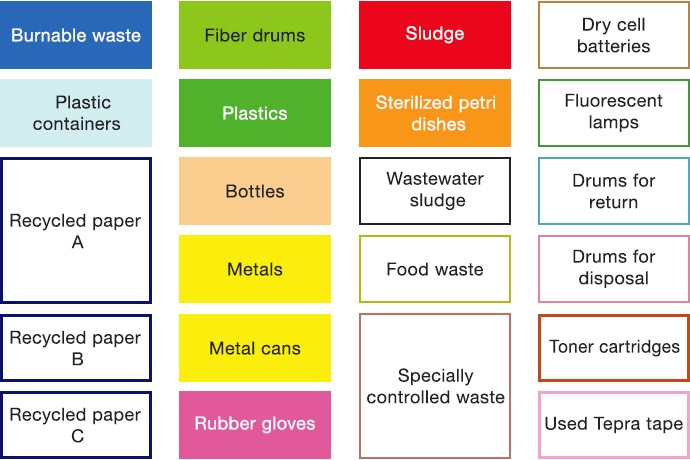We strive to improve our rate of recycling and reduce waste in order to make effective use of limited resources.
Initiative report
Effective use of food waste from the employee cafeteria
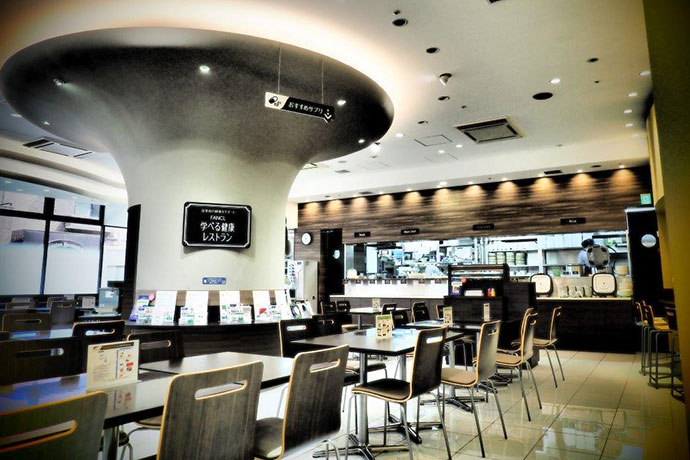
Since April 1, 2022, we have been working with a recycling company to compost food waste from the employee cafeteria for effective utilization as a resource. The conversion of food waste into a resource, as well as resource recycling, leads to a reduction in waste. We are also working with recycling companies to utilize food waste generated at the employee cafeterias in the FANCL Research Institute and Iijima Building for biogas power generation※.
Biogas power generation is a method of generating electricity by creating biogas from organic residues such as food waste and wood waste, and burning the biogas. It does not emit large amounts of greenhouse gases compared to when fossil raw materials are burned, and is effective against global warming.
Waste sorting at offices
FANCL is working to increase its rate of resource recycling by separating and collecting used paper and paper beverage cartons in its offices. We have set up separate refuse collection boxes in our Head Office buiilding and separate refuse into burnable waste, recyclable paper, plastic waste, metal waste, used dry cell batteries, and other categories. We also separate and collect old newspapers and magazines, used paper , and shredder waste, as well as food waste, beverage cartons, cans, glass bottles, and plastic bottles from the office kitchen, and sort them into recyclable items and that those that should be disposed of.
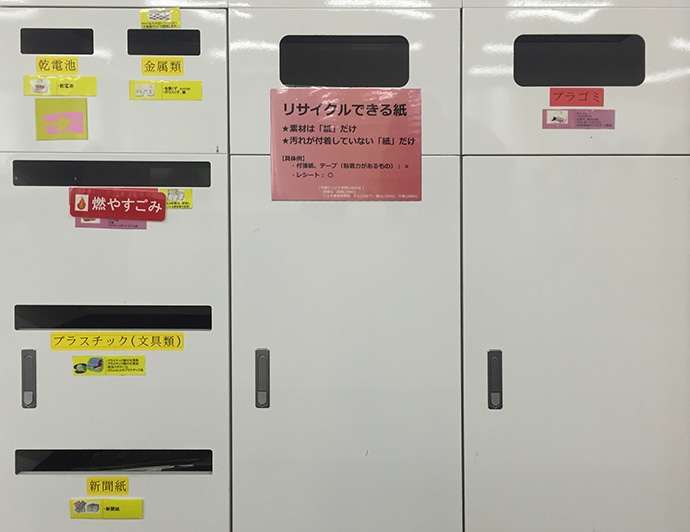
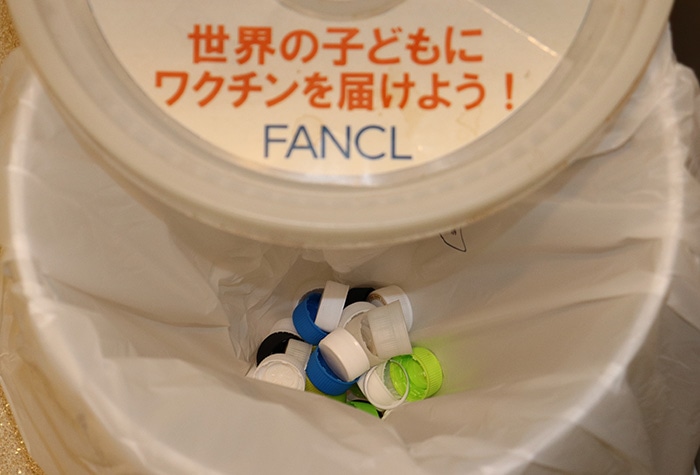
Used plastic bottle caps are given to NPOs that collect them, and are used to purchase polio vaccines※ for children around the world.
Polio, or poliomyelitis, is an infectious disease caused by the poliovirus that mainly affects children under the age of five. In Japan, vaccines are given to infants up to 18 months old, but in some developing countries, vaccination is insufficient, and support is required.
Waste sorting at plants
As a pioneer of FANCL Group's "environmentally friendly factories," the Shiga Plant installed FANCL Group's first solar power generation system in 2011, reducing electricity consumption and CO2 emissions. The plant is also actively working to reduce waste, and have achieved zero waste by utilizing recycling through the separation of 22 types of waste. This initiative is being horizontally spread to other company-owned factories, contributing to the reduction of business-related waste in the FANCL Group.
